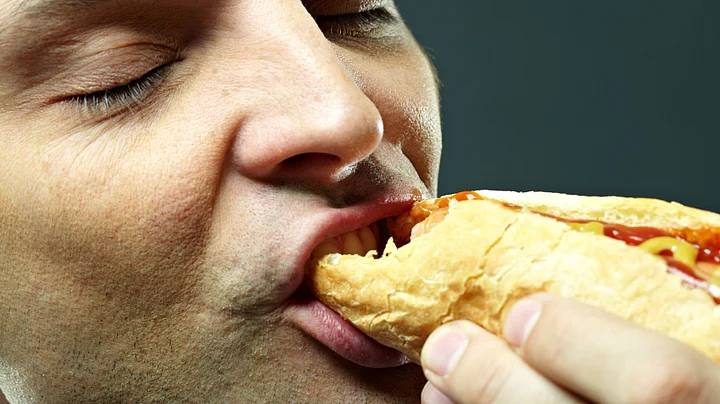While the world sits down for dinner after work in the evening, most urban Indians reach home to a snack with tea or drinks between 6-8 pm.
Dietary Disasters
According to diet recalls, most people report peak hunger at this time, and consume unhealthy food and extra calories. This is largely due to easy availability of oily, starchy & processed snacks and poor planning.
.jpg?auto=format%2Ccompress&fmt=webp&width=720)
Hungry Kya?
So rapacious is this desire to eat that many grab the first thing they can reach out to. From fried namkeens, samosas, biscuits, pakoras, to pizzas, noodles and sandwiches. This may be followed by a round of alcoholic drinks folowed by a hearty dinner and rounded off with a dessert, close to midnight.

Evening is certainly the time when hunger strikes the hardest and self-control is at its weakest. Whether it is physiological or psychological is hard to distinguish. Perhaps, it’s both.
Irrespective of the amount eaten at lunch, evening time coincides with the greatest need to eat, when the day’s stress and pressure begins to ease.
Smack that Snack
Eating inappropriate snacks in the evening and pushing dinner late into the night compounds the dietary mess.

Not only does it increase the caloric intake, it also loads up the system at the wrong time. No wonder almost every other urbanite complains of hyper-acidity, gastritis, constipation, irritable bowel syndrome (IBS), fatigue, sleeping disturbances and expanding waistlines.
Unchecked, this eventually results in high cholesterol, high blood pressure, increased uric acid, diabetes and even cardio-vascular disease.
According to research, eating late into the night can disturb the hormonal balance, and also adversely affect immunity, mental alertness and concentration.
According to recent studies, even the obesity gene exhibits a day-night variation, increasing during night after eating.
Replace Snack Time With Meal Time
Why is it that we cannot change our snack time into meal time? For those at home, this should be simple. For those who have work constraints, eating healthy only requires a bit of planning ahead and dividing calories between office and home. While those who consume alcohol regularly could either prepone drinking or drink like it’s globally done – after meals.
Even according to traditional Indian wisdom and Ayurveda, eating large meals after sun-down is undesirable.
Changing meal time and eating the last meal 3-4 hours before bed-time helps improve energy levels and resolves several digestive complaints.
Eating a light home-cooked snack like salad, vegetables, yogurt, nuts, or dal before leaving for a party can prevent hunger pangs and keep your food intake in check as you progress into the night.
Parting thought: eating a healthy meal when you are hungriest will do great service to your waistline and gut, and keep serious degenerative diseases at bay.
(The author is clinical nutritionist and Founder, www.theweightmonitor.com, Whole Foods India, and Founder President, Celiac Society of India)
------------
Related Links
(At The Quint, we question everything. Play an active role in shaping our journalism by becoming a member today.)
